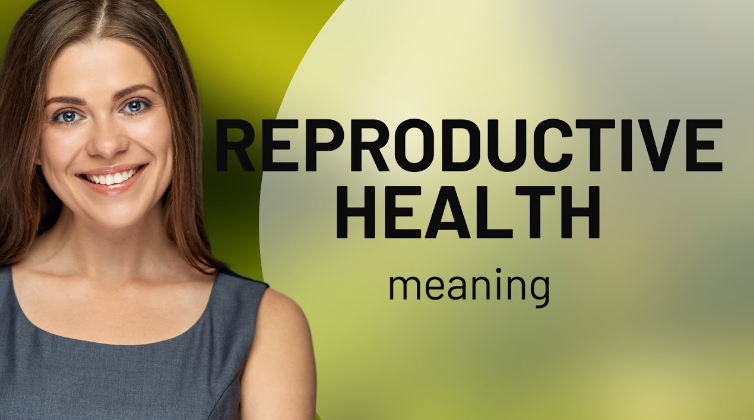Empowering Wellness: Addressing Reproductive Health Concerns

Reproductive health plays a vital role in overall well-being, and addressing concerns in this domain is crucial for empowering individuals to take charge of their health. In this blog post, we delve into strategies for addressing reproductive health concerns, providing insights and guidance to foster wellness and promote proactive care in this essential aspect of human health.
Contents
Understanding Reproductive Health Concerns
Reproductive health concerns encompass a range of issues that affect the reproductive systems of individuals, including fertility challenges, menstrual disorders, hormonal imbalances, sexual health issues, and conditions impacting reproductive organs. These concerns can have significant implications for physical health, emotional well-being, and quality of life.
Importance of Addressing Reproductive Health
Prioritizing reproductive health is essential for individuals of all ages and genders to ensure optimal function, fertility, and overall well-being. By addressing reproductive health concerns proactively, individuals can identify underlying conditions, access appropriate care, and make informed decisions to support their reproductive wellness and future family planning goals.
Strategies for Empowering Reproductive Wellness
Empower yourself to address reproductive health concerns and foster wellness with the following strategies:
- Regular Health Screenings: Schedule routine gynecological exams, prostate checks, and reproductive health screenings as recommended by healthcare providers to detect potential issues early, monitor reproductive health indicators, and receive timely interventions.
- Open Communication: Maintain open and honest communication with healthcare providers about reproductive health concerns, symptoms, changes in menstrual cycles, sexual function issues, fertility goals, and any discomfort or abnormalities experienced in the reproductive system.
- Healthy Lifestyle Habits: Adopt healthy lifestyle practices, including balanced nutrition, regular exercise, stress management techniques, quality sleep, and avoiding harmful substances, to support reproductive health, hormonal balance, and overall well-being.
- Fertility Awareness: Understand your menstrual cycle, ovulation patterns, fertility windows, and factors influencing reproductive health and fertility to optimize conception efforts, track reproductive health changes, and seek fertility evaluations if necessary.
- Safe Sexual Practices: Practice safe sex, use contraception effectively to prevent unintended pregnancies and sexually transmitted infections (STIs), maintain sexual health through regular screenings, and address any concerns related to sexual function or intimacy openly.
- Seeking Specialist Care: Consult reproductive endocrinologists, fertility specialists, urologists, gynecologists, and sexual health experts for specialized care in addressing complex reproductive health concerns, fertility challenges, hormonal imbalances, or conditions affecting reproductive organs.
- Emotional Support: Seek emotional support from therapists, support groups, partners, or loved ones to cope with the emotional impact of reproductive health concerns, infertility struggles, pregnancy losses, or sexual health issues compassionately and effectively.
- Education and Advocacy: Educate yourself about reproductive health topics, advocate for comprehensive reproductive healthcare access and awareness, engage in community initiatives supporting reproductive rights, and empower others to prioritize their reproductive wellness journey.
Abortion rights and access remain a contentious issue globally, with legal, social, and healthcare implications deeply affecting individuals’ reproductive rights. Focusing on Michigan, recent legislative changes and public debates have put abortion access in the spotlight, highlighting the importance of understanding local laws, resources, and support systems available for individuals navigating their reproductive rights.
In Michigan, individuals seeking abortion services are encouraged to consult with healthcare providers to understand the legal framework, available options, and support services, ensuring informed decisions that reflect their well-being and reproductive health needs. Engaging with community-based organizations and advocacy groups can also provide valuable support and guidance during these complex and personal decisions.
Creating an Inclusive Environment for Reproductive Health Discussions
Fostering an inclusive and supportive environment for discussions around reproductive health is essential for dispelling myths, breaking stigma, and promoting informed decisions. Community centers, educational institutions, and workplaces can play pivotal roles by organizing workshops, seminars, and support groups focused on reproductive health education. Equipping individuals with accurate information and a safe space to express concerns and ask questions encourages a community-oriented approach to reproductive wellness.
Collaboration and Proactive Care
Collaborate with healthcare providers, reproductive health specialists, fertility experts, and mental health professionals to address reproductive health concerns holistically, receive personalized care, explore treatment options, and foster empowerment in managing reproductive wellness effectively.
Empowering reproductive wellness involves proactive care, open communication, healthy lifestyle habits, and informed decision-making to address reproductive health concerns comprehensively. By prioritizing reproductive health, seeking timely interventions, advocating for reproductive rights, and fostering holistic well-being in this crucial aspect of health, individuals can navigate reproductive challenges with empowerment, knowledge, and resilience. Remember, your reproductive wellness is a vital component of overall health—nurture it mindfully and proactively for a healthier, empowered future.



